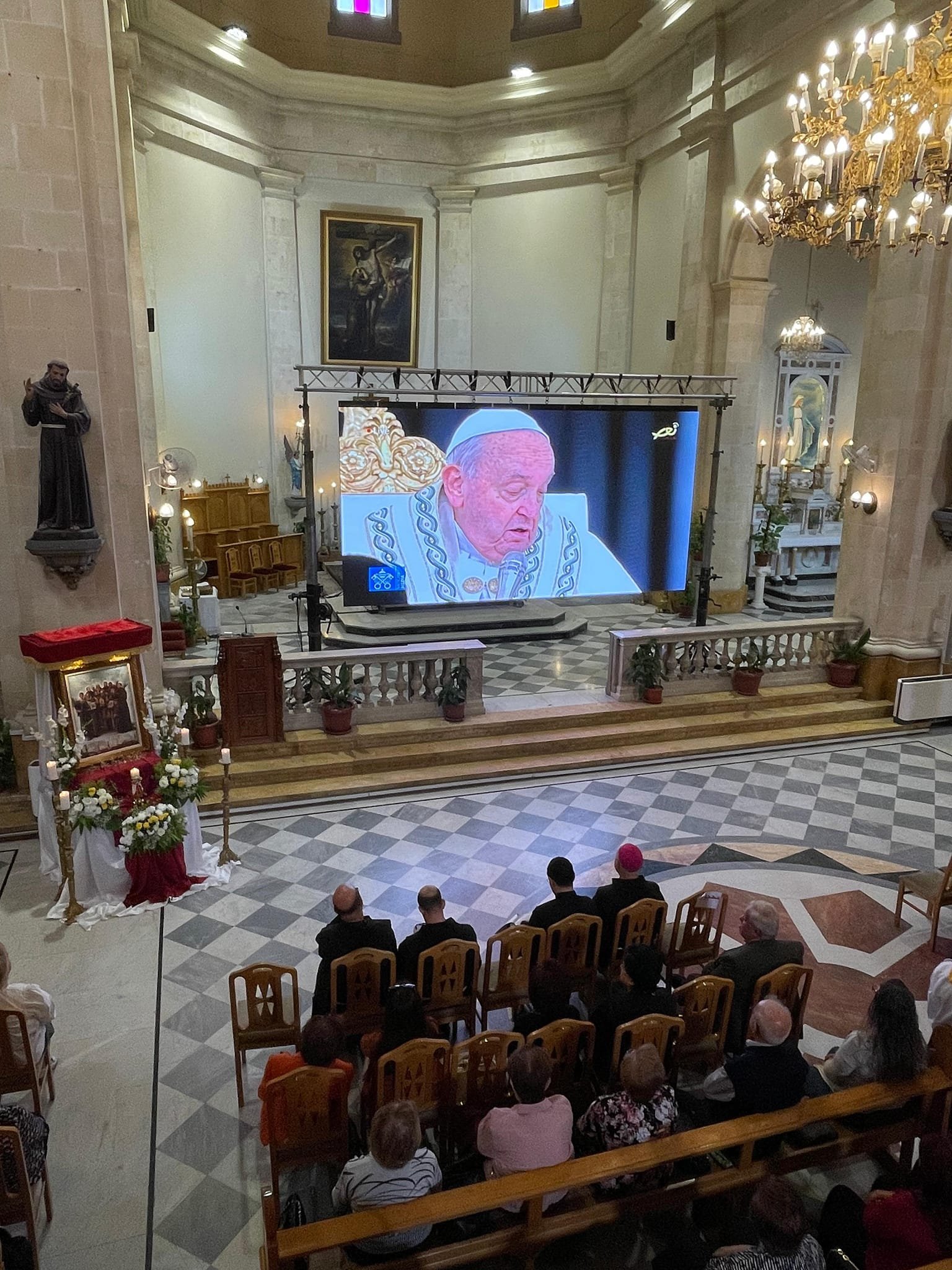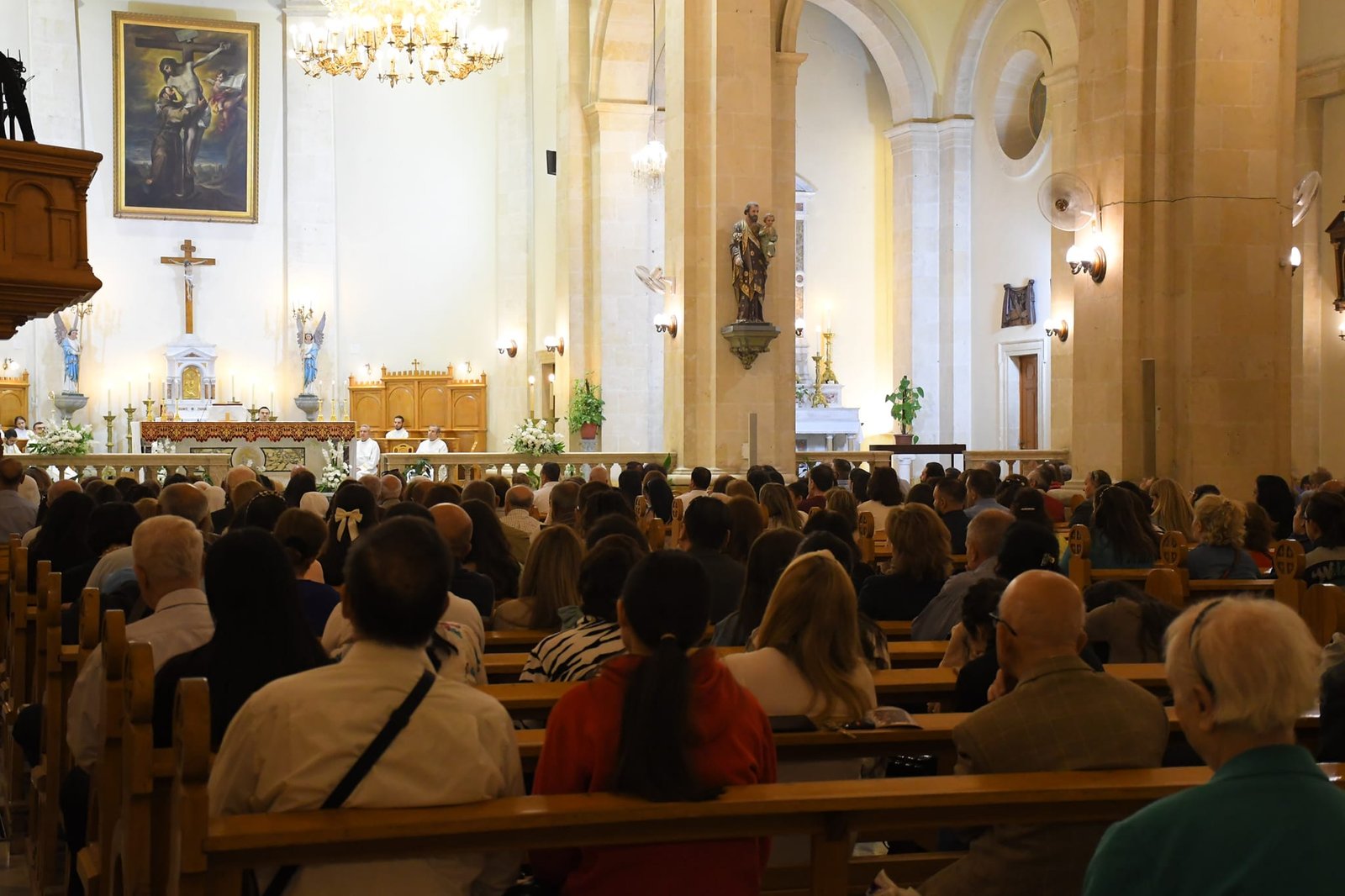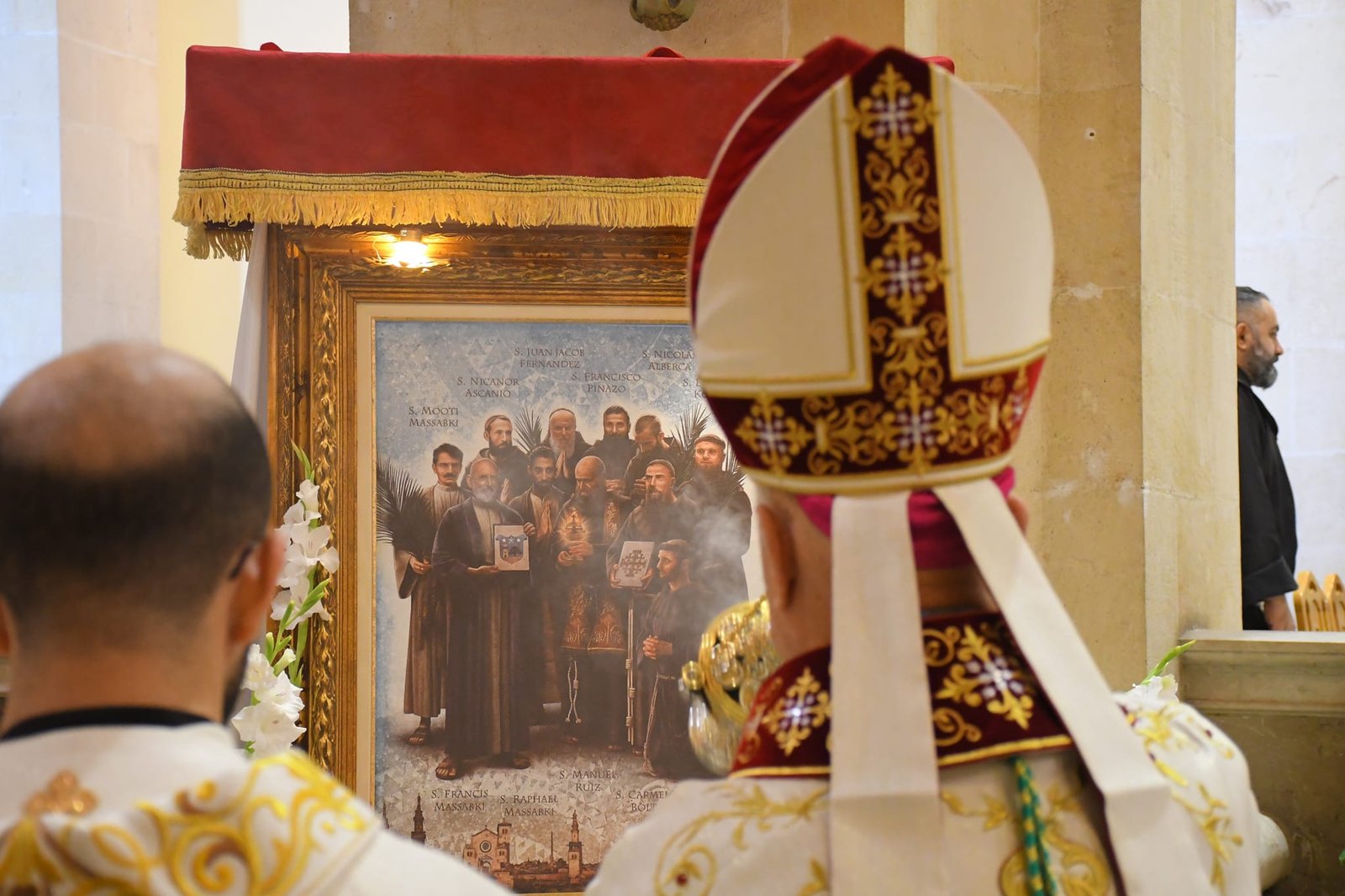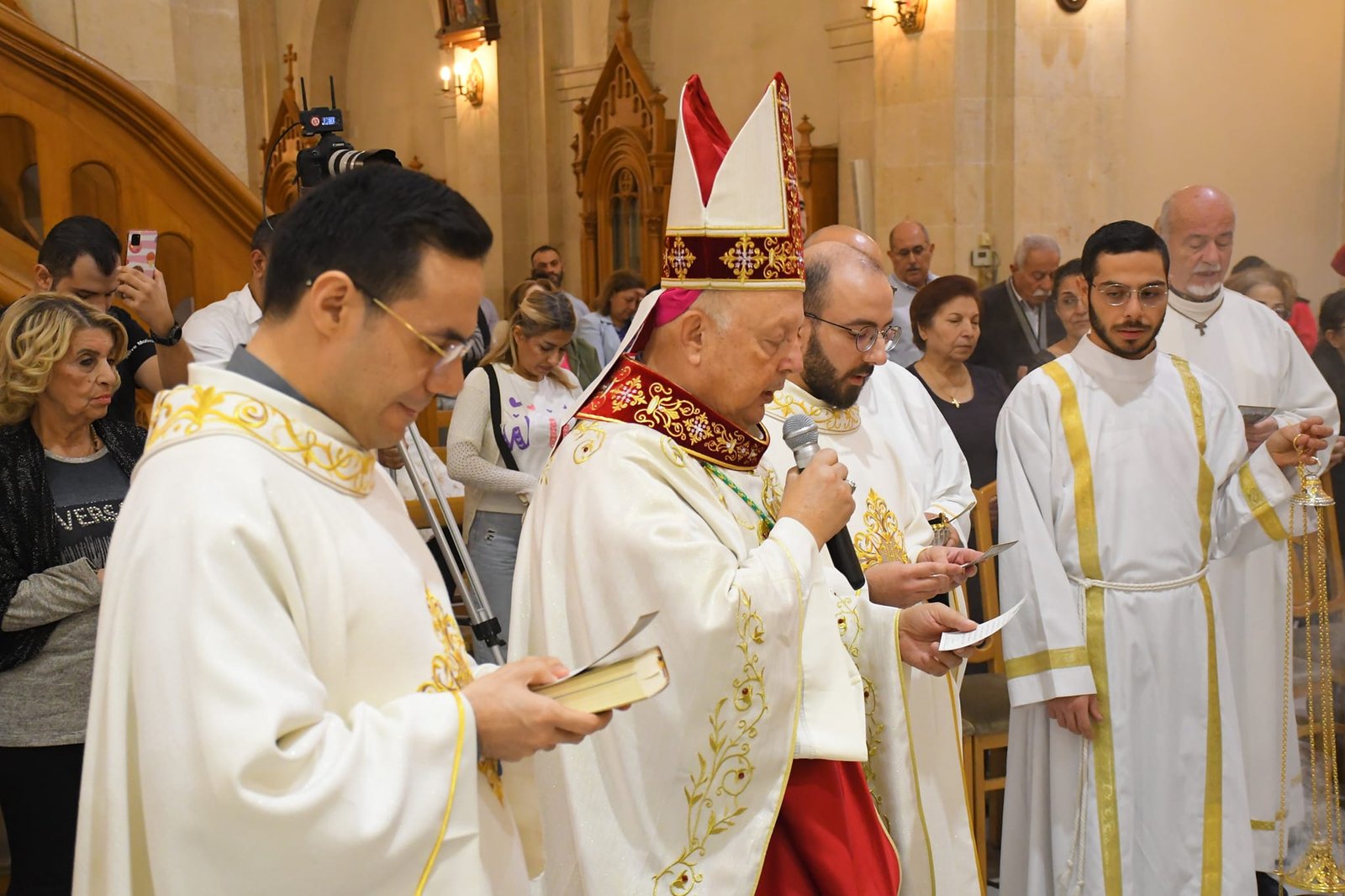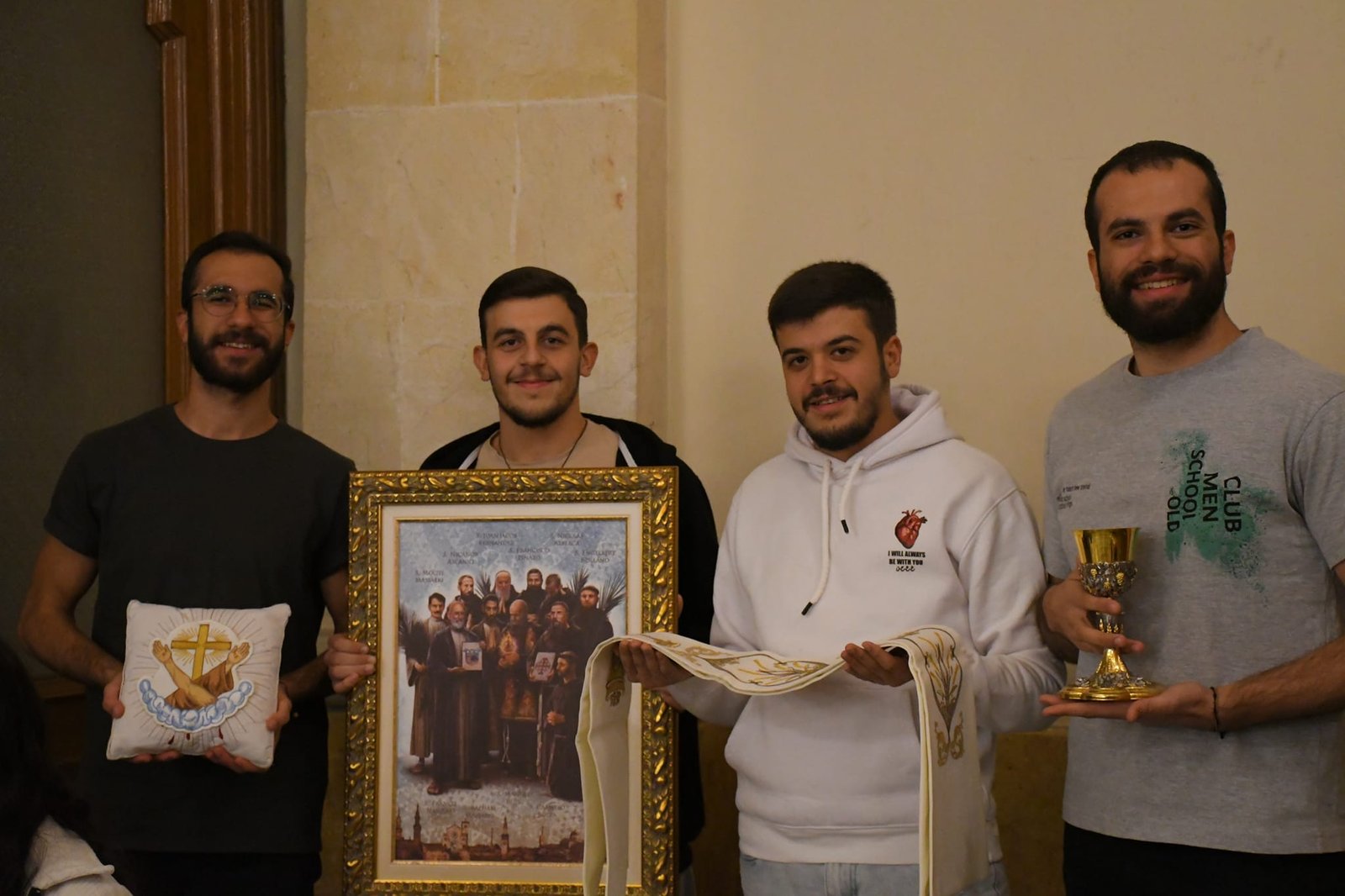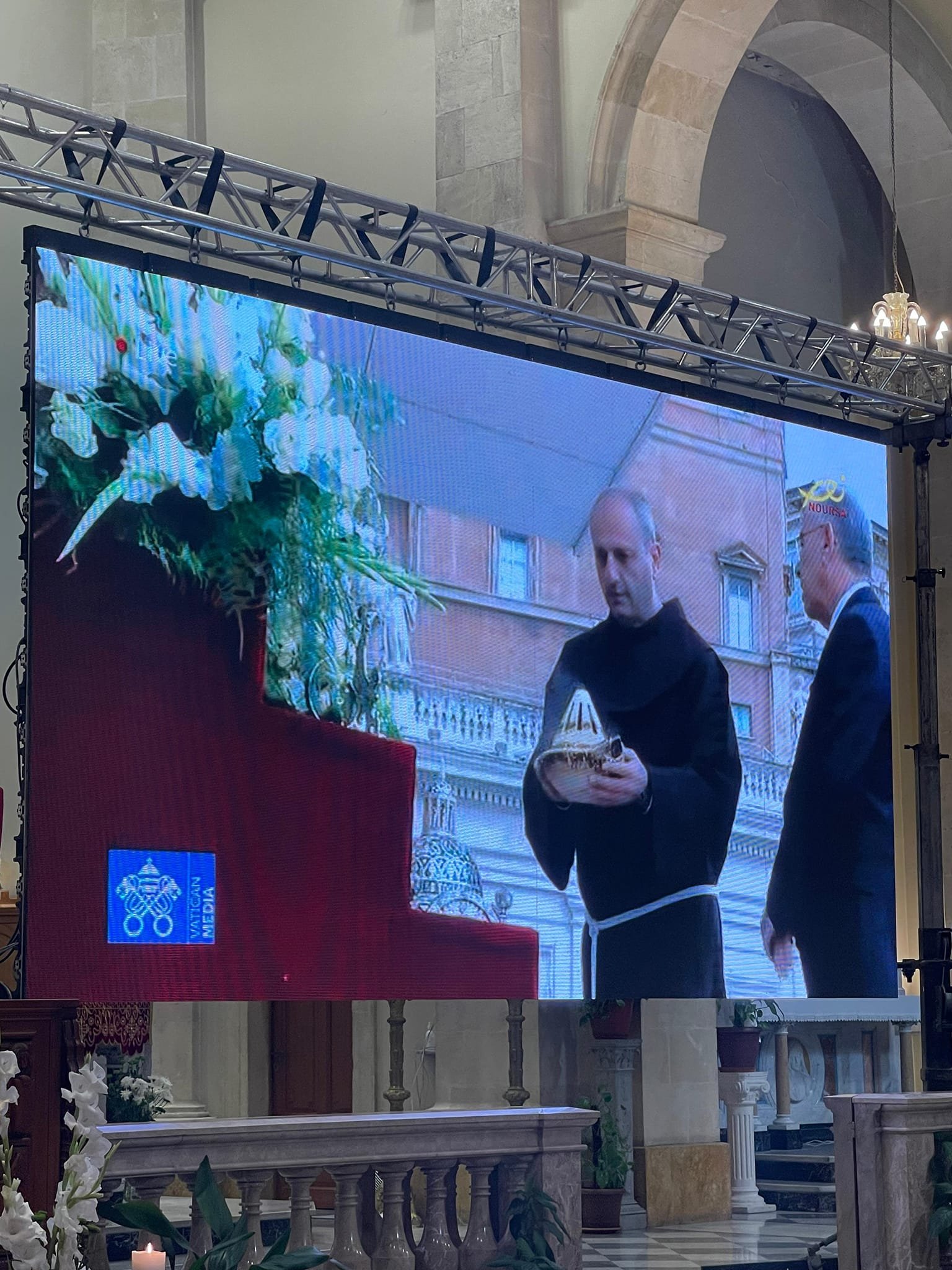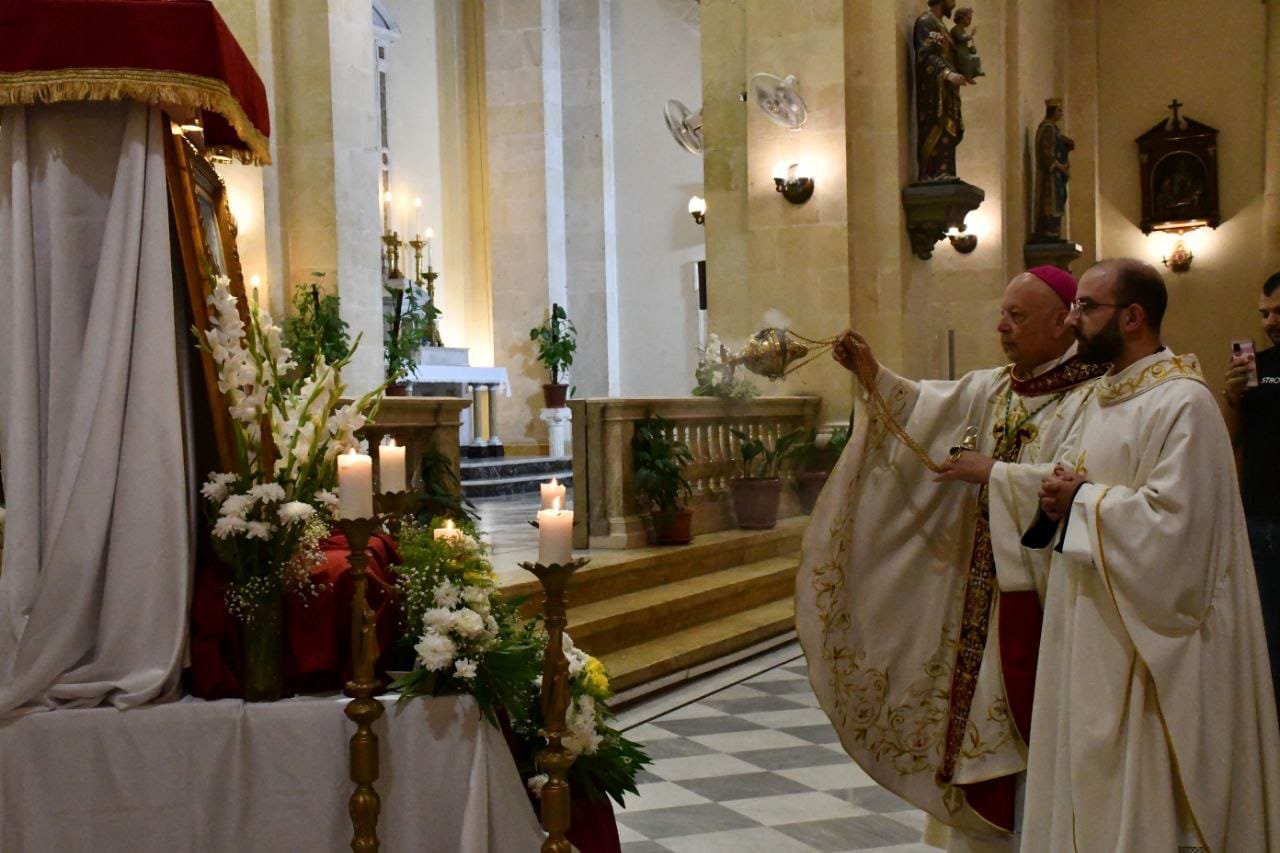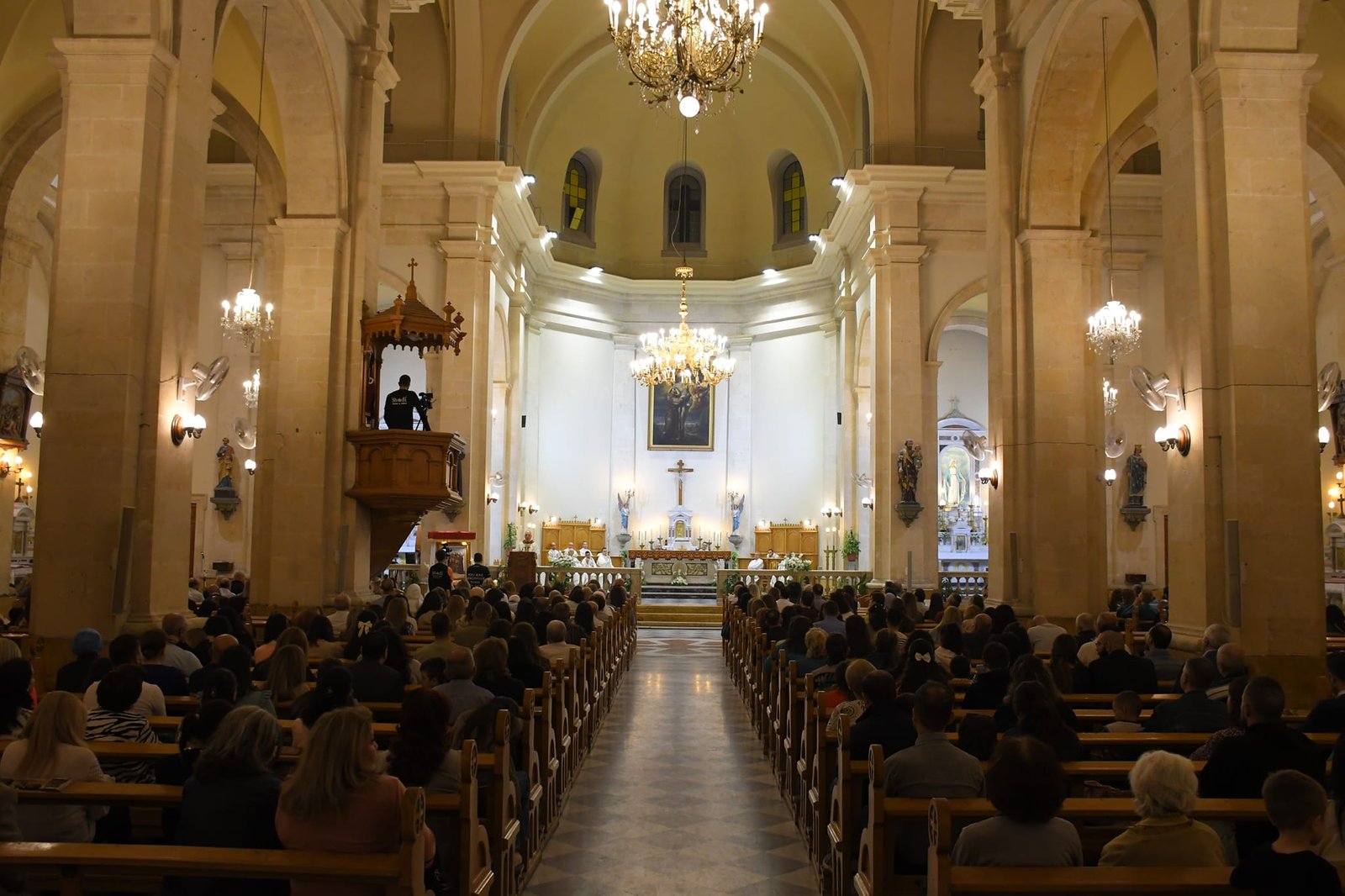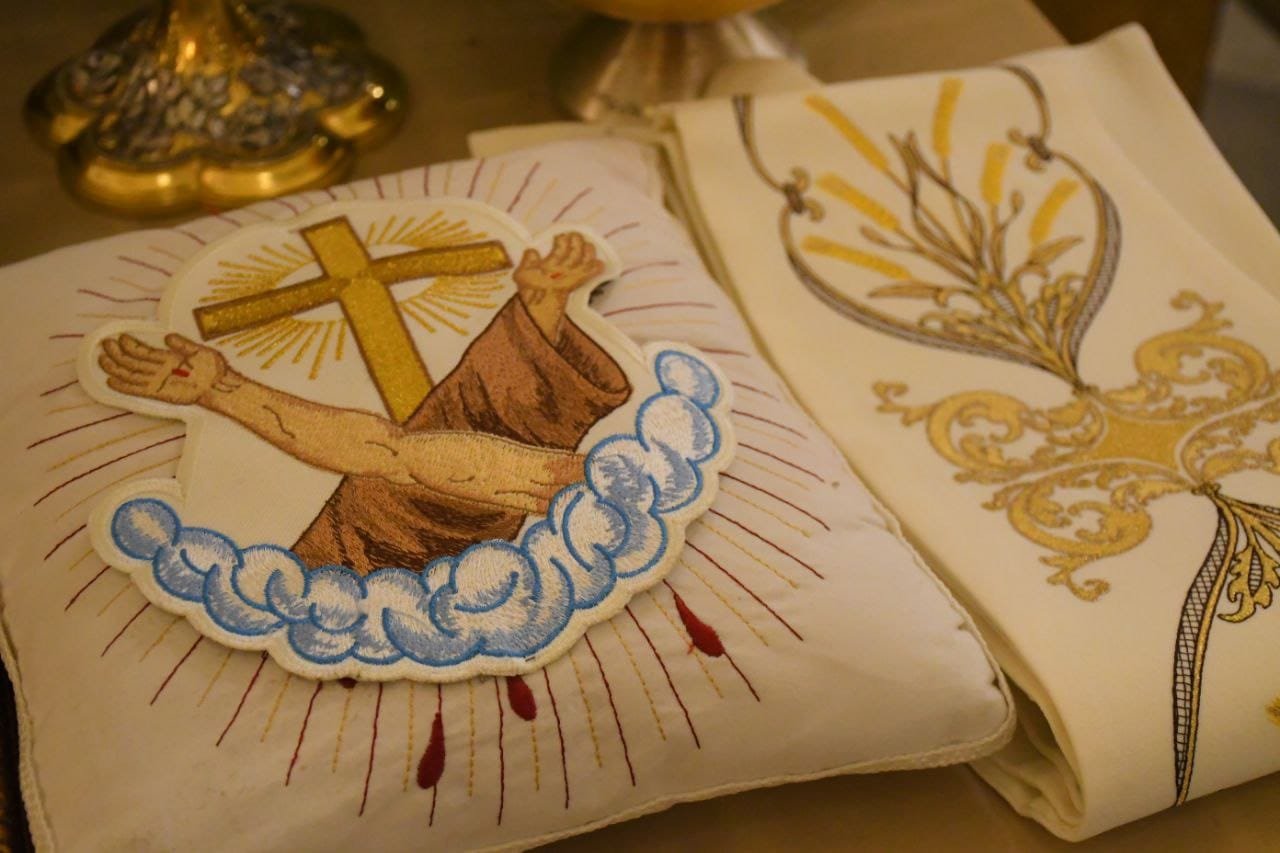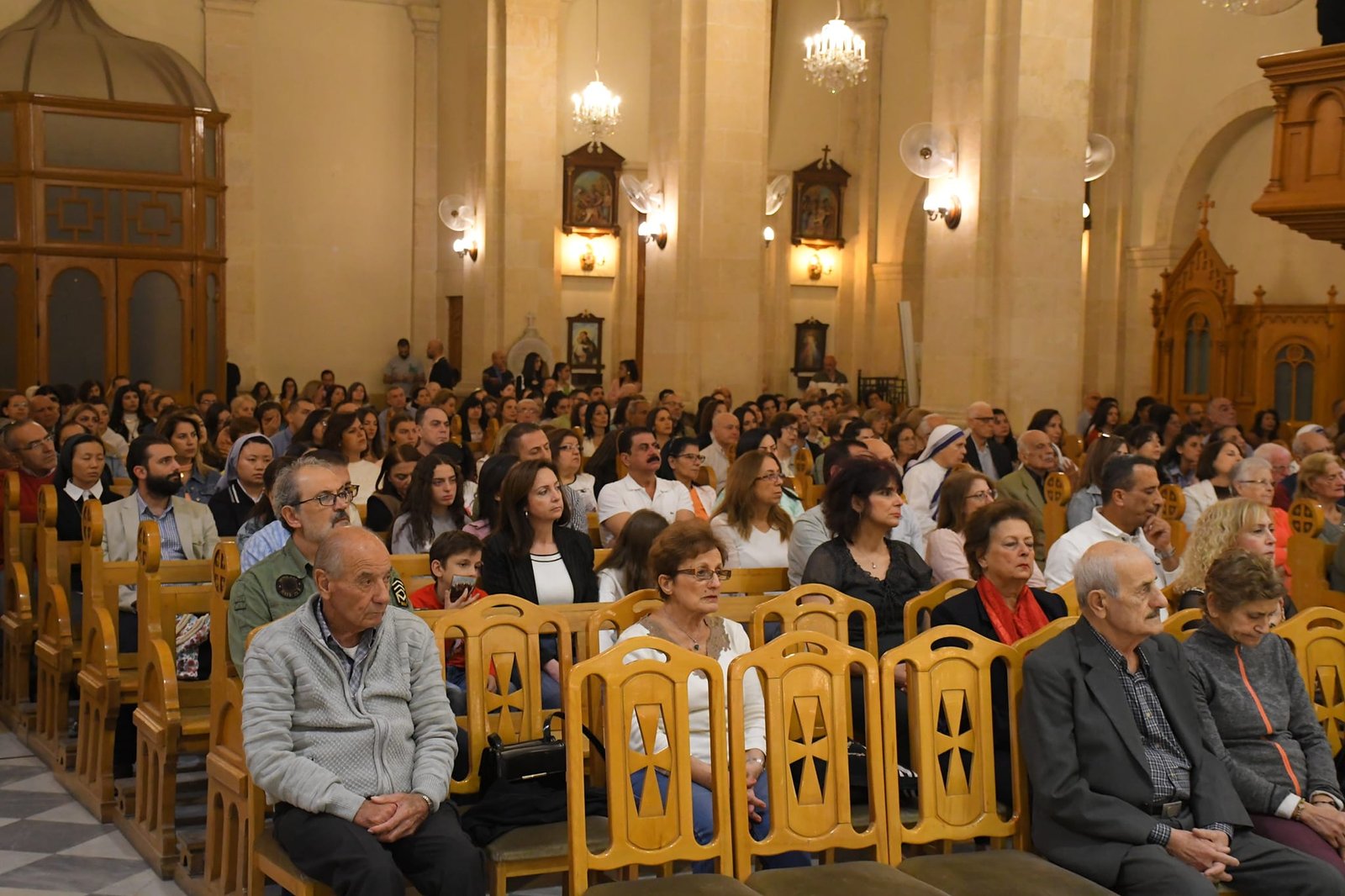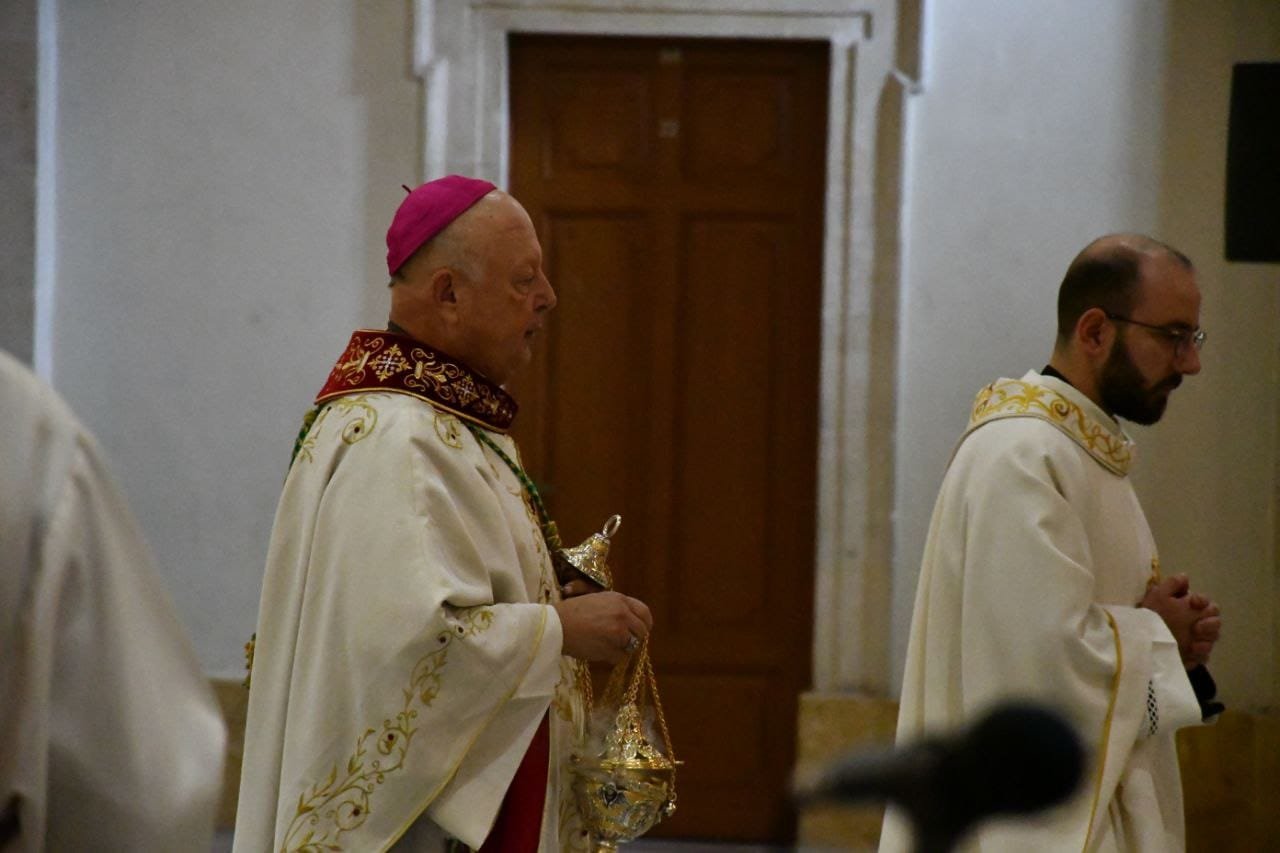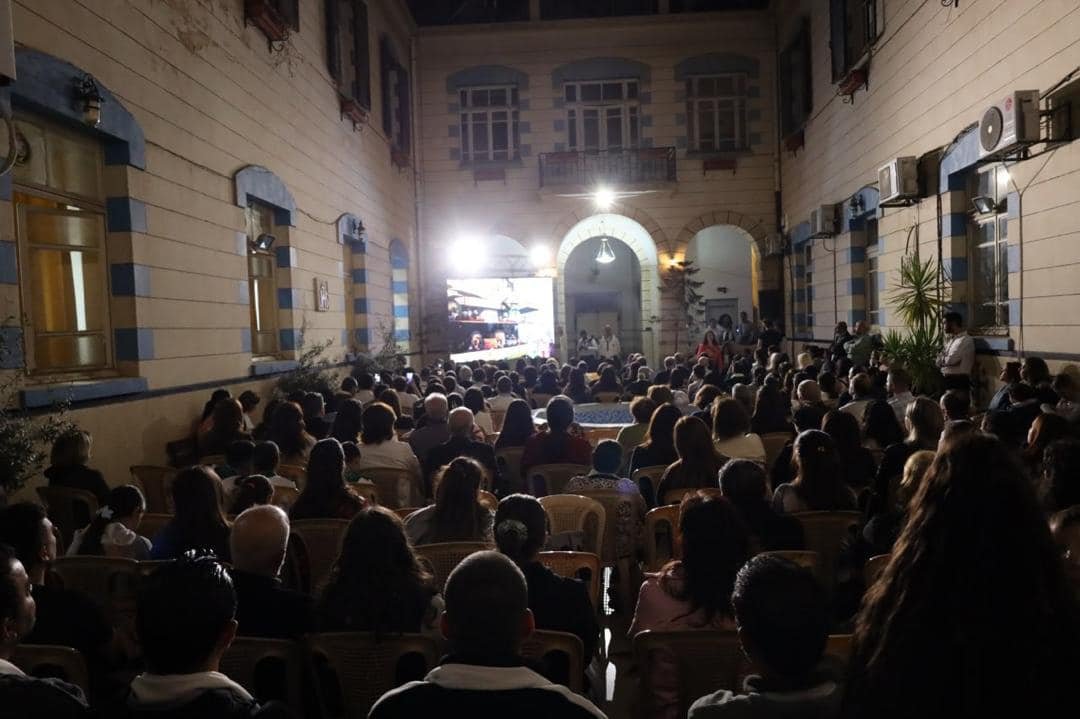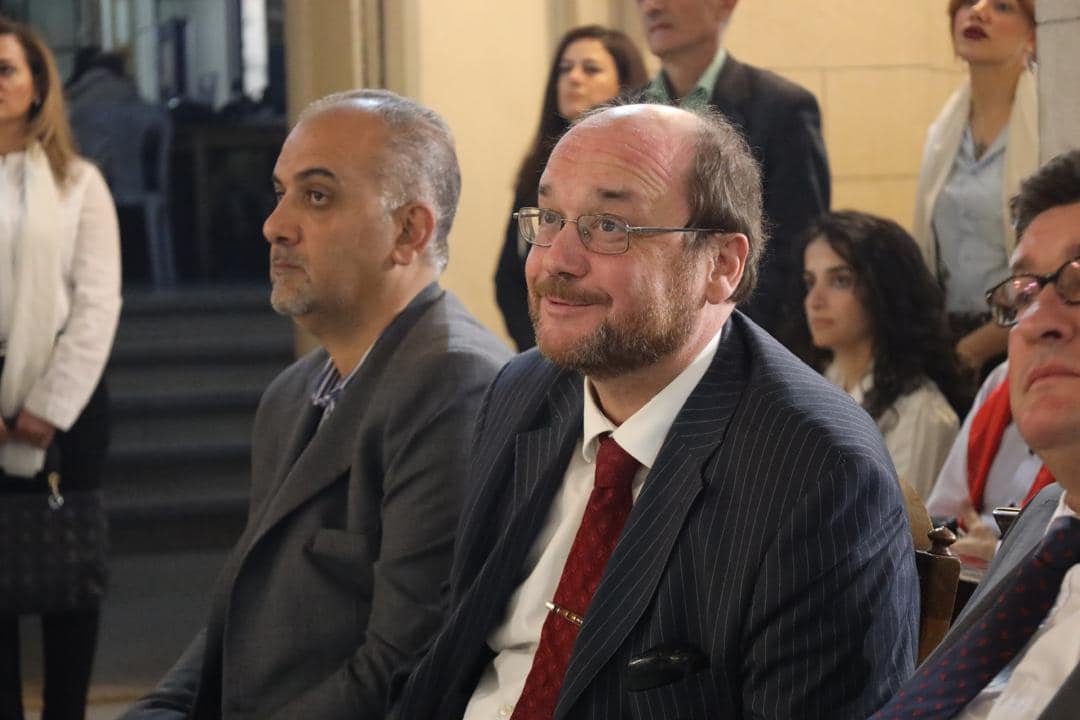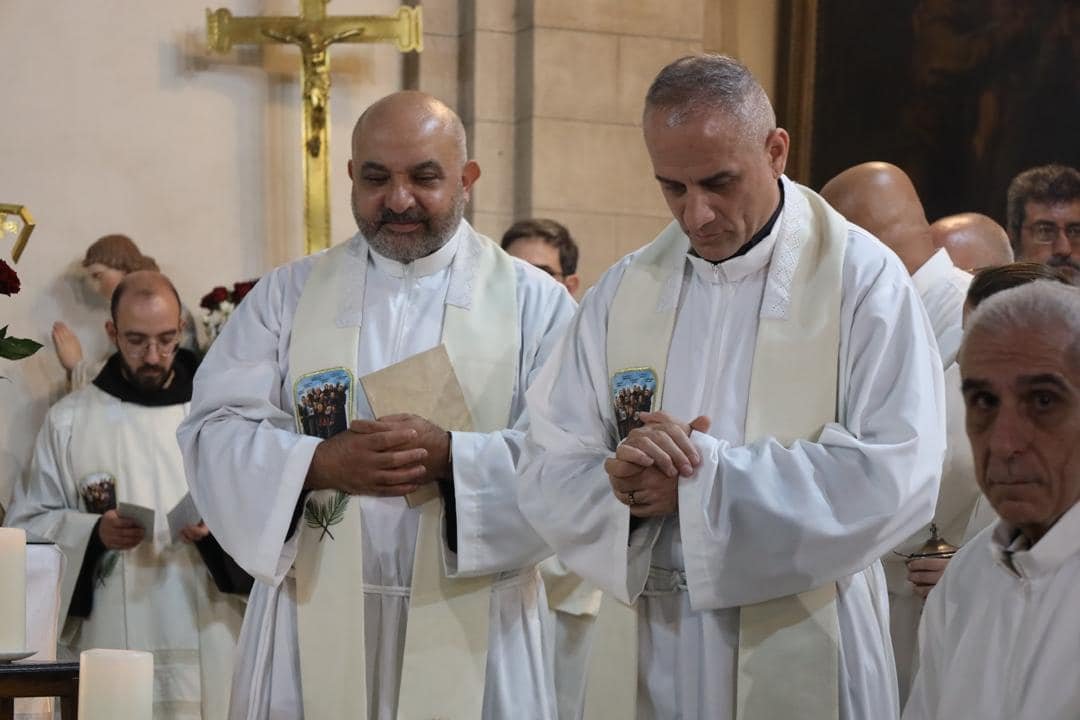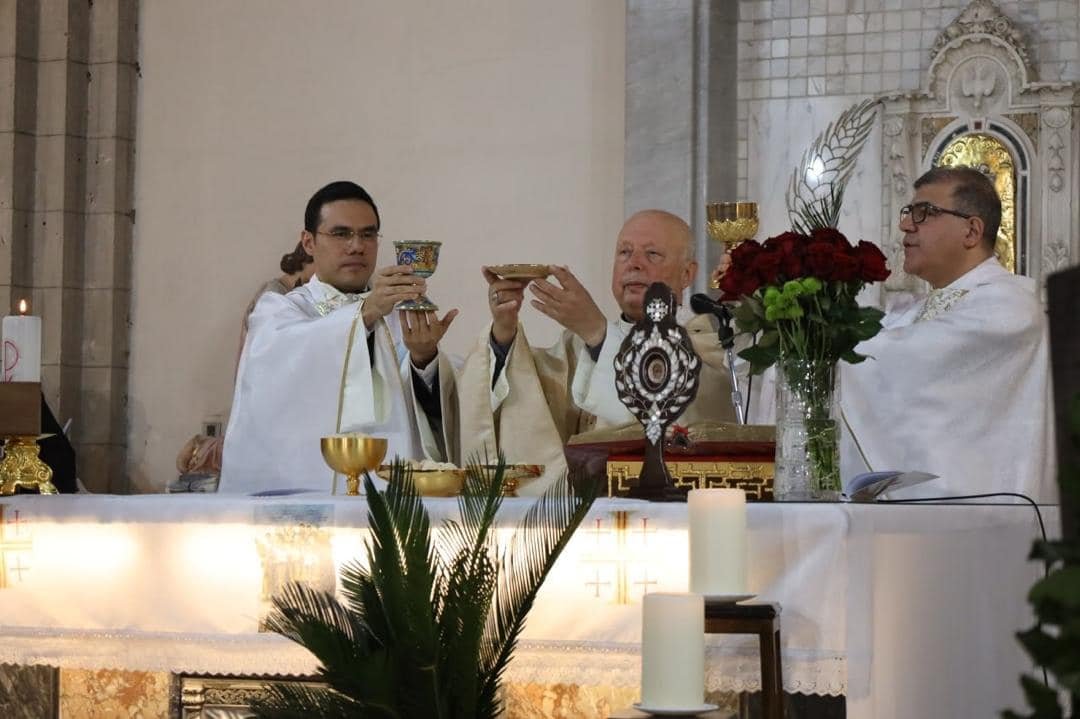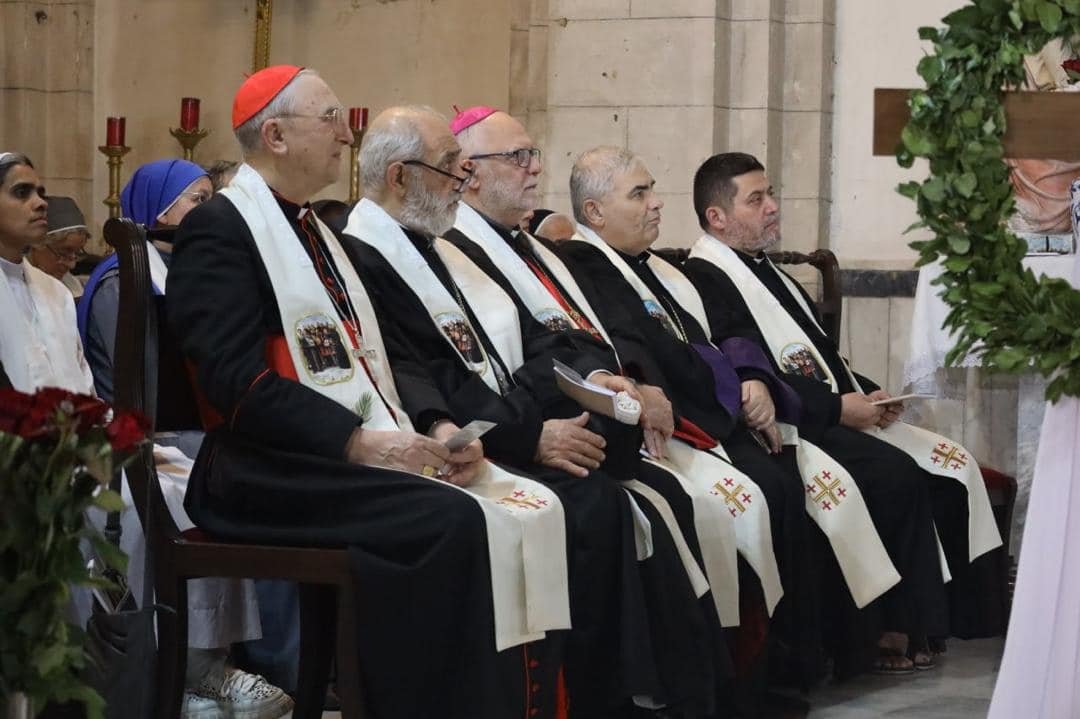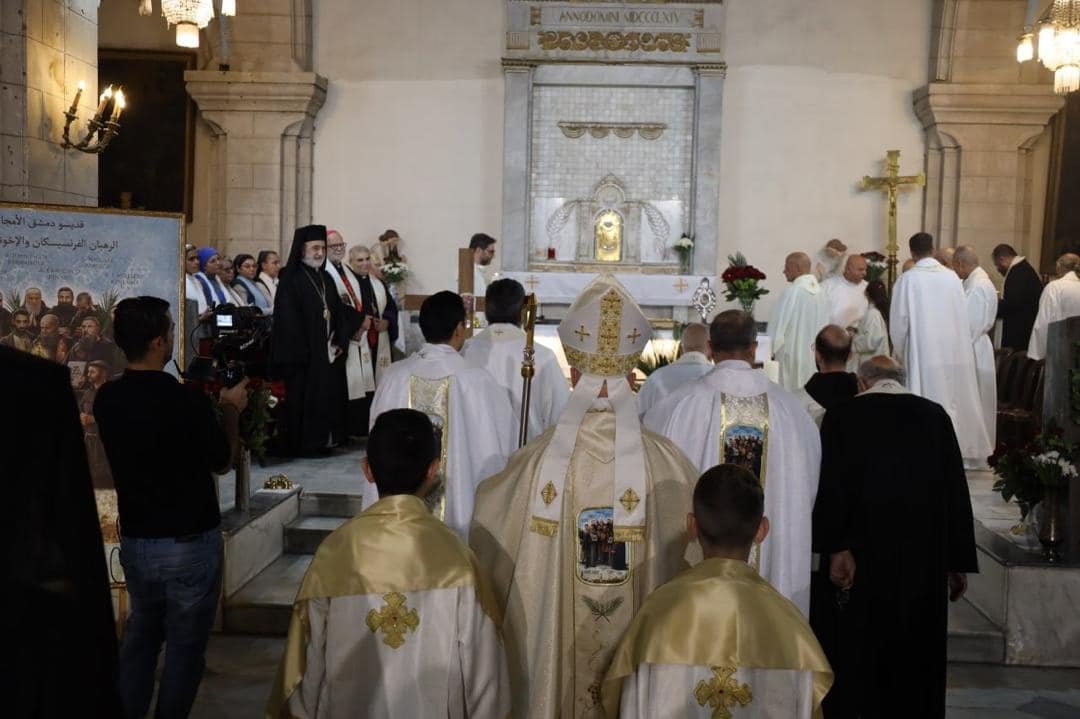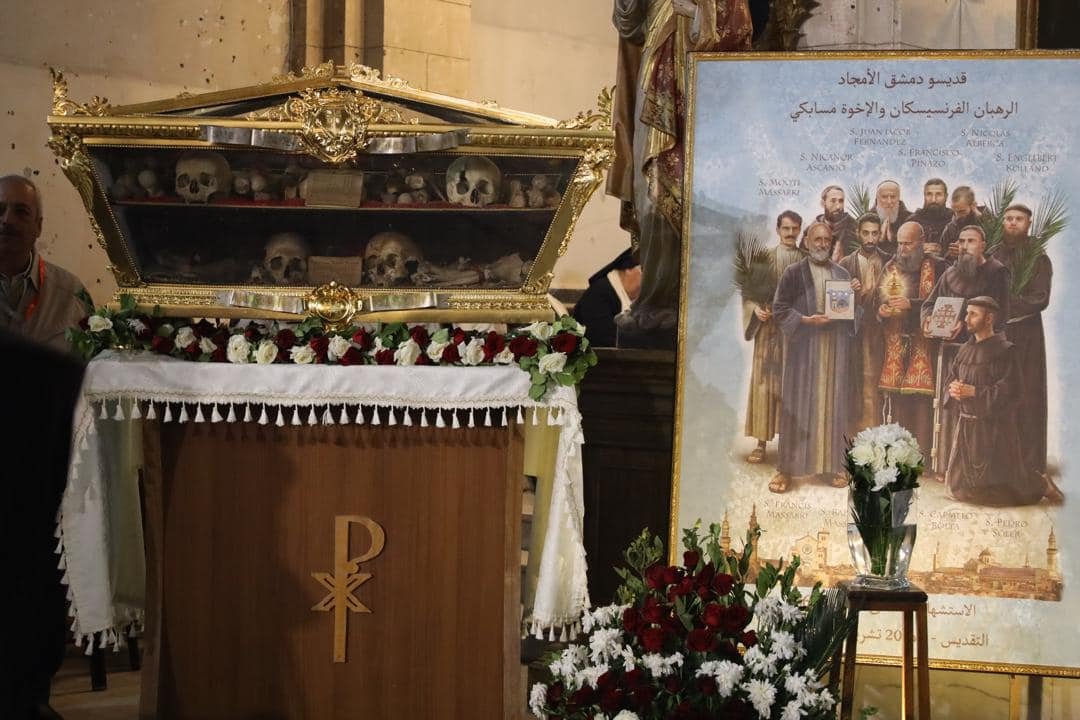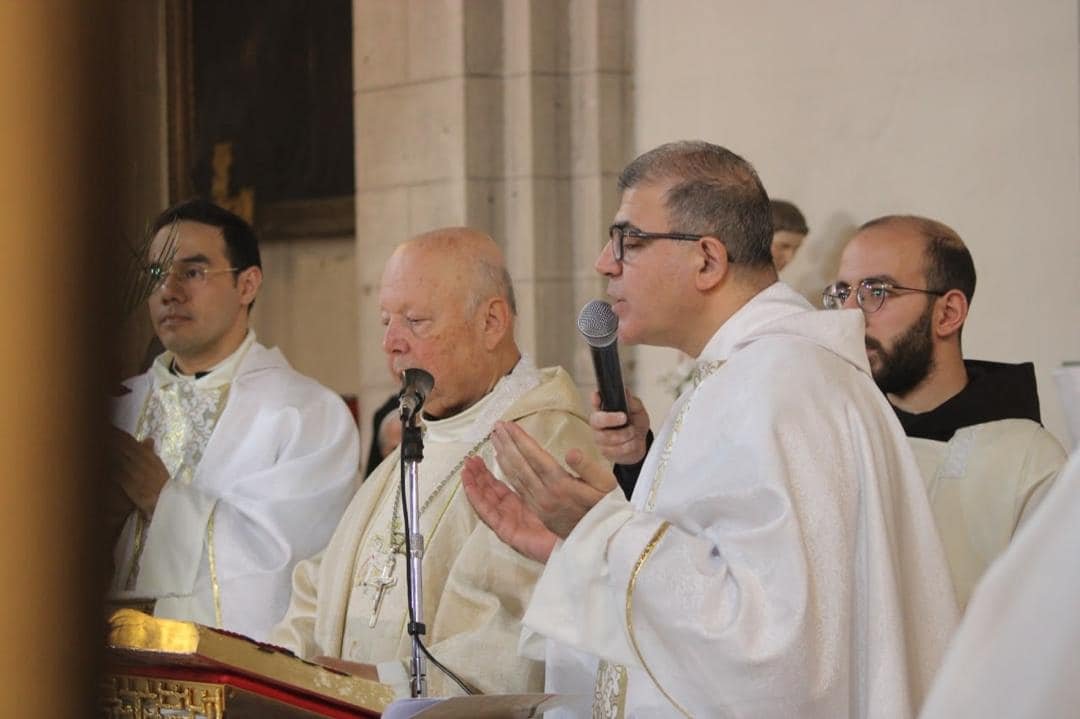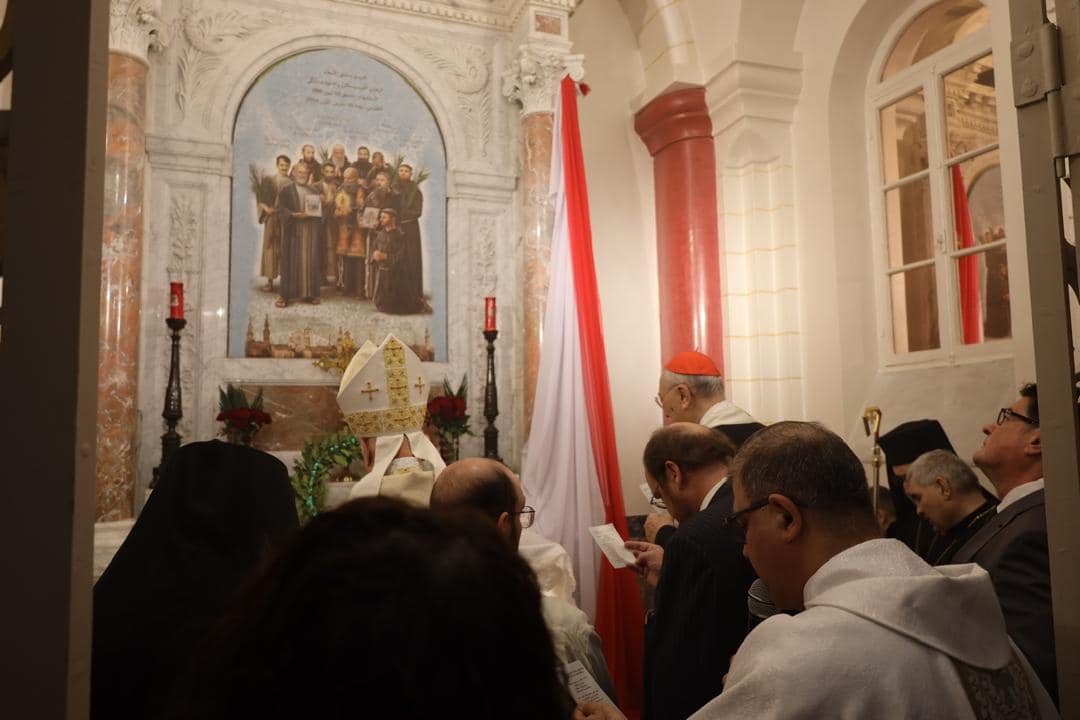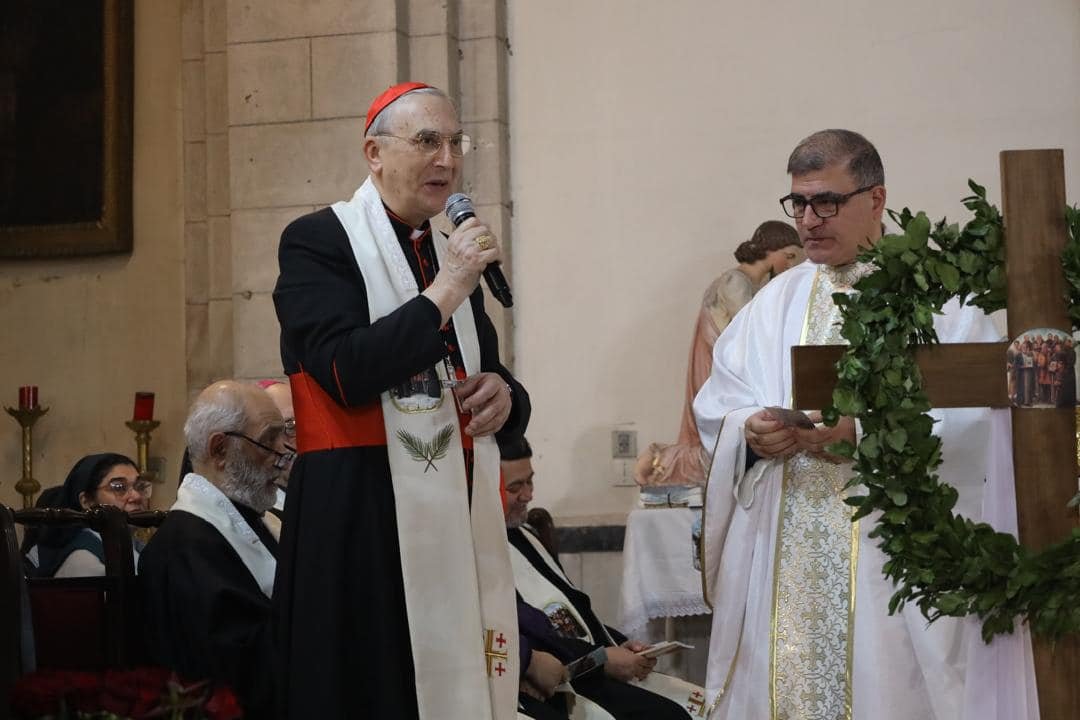The Latin Church celebrated on Sunday, 20th of October, the divine mass that Pope Francis celebrated in the Vatican, during which he declared the sanctity of the martyrs of Damascus (the eight Franciscan friars along with the three Massabki brothers) as saints in the Universal Church.
The celebration was attended by a large crowd of priests, consecrated individuals, and believers who experienced moments of joy in holiness and fellowship with Pope Francis.
All the Latin parishioners in Syria broadcasted this mass through large screens in churches to share in the joy that filled everyone’s hearts.
On Sunday, 27th of October 2024, the Latin parish celebrated a mass of thanksgiving to the Almighty God for the blessing of canonization (Rome on the 20th of October 2024) received by eleven martyrs at the Franciscan friars Monastery – Bab Touma, where they were martyred. The mass was presided over by His Excellency Bishop Hanna Jallouf, the Apostolic Vicar of the Latin Church in Syria, in the presence of bishops, priests, consecrated individuals, and a large gathering of God’s people.
The celebration was also attended by believers from various governorates, as well as a delegation from the diplomatic corps (the embassies of Austria and Hungary) and His Eminence Cardinal Mario Zenari, the papal ambassador in Syria. The mass was broadcasted live on “Nour Sat” and “Charity TV” channels.
The sermon from His Excellency Bishop Hanna Jallouf, the Apostolic Vicar of the Latin Church in Syria, in this mass.
Dear sisters and brothers,
I am pleased and honoured on this blessed day to raise prayers and thanks to the Almighty God who has given us these new saints, who were canonized and raised to the glory of heaven on the 20th of the current month in St. Peter’s Square, the threshold of the apostles, in Rome.
The eight Franciscan friars and the three Massabki brothers, who gave a wonderful testimony of their faith in their lives and sealed it with a testimony of blood on the night of 9-10 July in the year 1860, choosing death over denying Christ, now wear a new crown of glory on the Church’s forehead.
The names of the new saints are:
The Franciscan friars:
Manuel Luiz, Carmelo Bolta, Pedro Soler, Nicanor Soria, Nicolás Maria Torres, Francisco Pinazo, Juan Jacomo Fernández from the Spanish affiliation, Father Ingelbert Kolland from the Austrian affiliation.
As for the Massabki brothers, they are: Francis, Abdel Mootie, and Raphael Massabki.
The martyrdom of the saints at the hands of the Ottoman authorities in Damascus on the night of July 9-10, is called “Night of Blood” or “Dark Night” and “Night of Shame” in the history of this city. Due to the increased disturbances in Damascus and the attack on Christians by extremists who wanted to kill them, these martyrs entered the church inside the Franciscan monastery, and approached the sacrament of reconciliation, confessed their sins and received the Holy Eucharist, praying the psalm: “The Lord is my light and my salvation, whom shall I fear? The Lord is the stronghold of my life; of whom shall I be afraid? Though an army encamp against me, my heart shall not fear; though war arise against me, yet I will be confident…”
In the early hours of July 10th, the attackers infiltrated the monastery grounds and forcibly entered where the gathering was, armed with weapons, and killed the eight Franciscan friars and the three Massabki lay brothers on the steps of the altar inside the church with blows from iron cudgels.
The massacres that occurred in 1860 were among the worst sectarian massacres in the history of the Ottoman Empire (before the Armenian and Syriac massacres). Many still remember it with pain, as these massacres were the reason for their emigration to all ends of the world. The total number of martyrs killed in Damascus was around 11,000. More than 400 women were raped, and all homes, shops, churches, monasteries, schools, and missions were looted and burned. Around 3000 homes were turned to rubble, and 200 shops destroyed, 11 churches and 3 monasteries were demolished, about 30 priests were killed, and the Mariamite Church and Zaitoun church in Zaitoun neighbourhood were looted and set on fire.
The noble Muslims of Damascus had the duty to help the Christians and save as many as possible, led by Prince Abd al-Qadir al-Jaza’iri.
These martyrs bore witness to their faith with exemplary courage, choosing death over denial of their Christian faith. There was no hatred or resentment in their hearts towards their killers, but rather prayers for them, as Jesus did from the cross: “Father, forgive them, they know not what they do.” (Luke 23:34).
Forgiveness is at the core of our evangelical culture as Christians and the civilization of our long history.
It is a culture of forgiveness from the heart, taught to us by the Lord Jesus: “Love your enemies, and pray for those who persecute you, that you may be children of your heavenly Father” (Matthew 5:44-45). This is the cornerstone of our faith. We remember history to continue giving witness, renew our message, and amend what needs to be corrected in our lives.
We forgive, but we do not forget, in order to be rooted in the land where we were born and to bear witness to the resurrection of the One who died for us and offered Himself for our salvation.
The martyrs of Damascus remind us that Christianity is not merely a set of beliefs, but a way of life. It is a call to holiness, to imitate the One who sacrificed Himself for us so we may be like Him.
Pope Francis wanted at the end of the synod meetings held in Rome to elevate these martyrs to sainthood to send us a message saying: “The Church in the world moves on two feet: the consecrated and the lay, on the foot of equality. Side by side, or else it will limp in its journey.”
These martyrs represent both groups together: the devoted and the secular, whose blood was mixed for the witness of the Christian faith. They also tell us that the church is a universal inclusive church, not limited to one group over another. It is universal in its east and west, with the secular represented by the Massabki brothers, and the friars are those who carried the message of salvation to stand beside their brothers in faith.
Our prayer today,
Is a prayer of thanks that we raise to the Most High who has given us these new saints, to be a beacon for us in our Christian faith and hope. We draw strength from their faith and example, to overcome the challenges of life on this earth, the land of peace, despite all the wars, persecutions, economic sieges, and unknown future.
O mighty eternal God, who builds the church as the secret body of Christ and adorns it with the testimony of the martyred saints, look upon the glorious pains suffered by our martyred saints that adorned them with greatness and dignity. Make these pains a constant help to us, they are a source of blessing and hope for us. We seek their intercession for us all. Amen.
The Franciscan monks in the Custody of the Holy Land and in Syria especially, spreading this news with great joy, affirm that the declaration of the canonization of these blessed ones, including three Syrians, is a message of hope and peace in our Middle East, especially in our country Syria that has recently suffered from violence and terrorism.
And as in the martyrdom of the saints in 1860, where many Muslims rejected violence by sheltering their Christian brothers, today the signs of solidarity and friendship are still present in our society, and all we have to do is cherish and support it based on our faith that Syria will always remain a land of holiness, solidarity, and dialogue.
May the intercession of the new saints be a support and protection for us and for the Church of the East, which is going through a difficult labour that we hope will end in the birth of love, peace, and tranquillity for Syria and the entire region.


